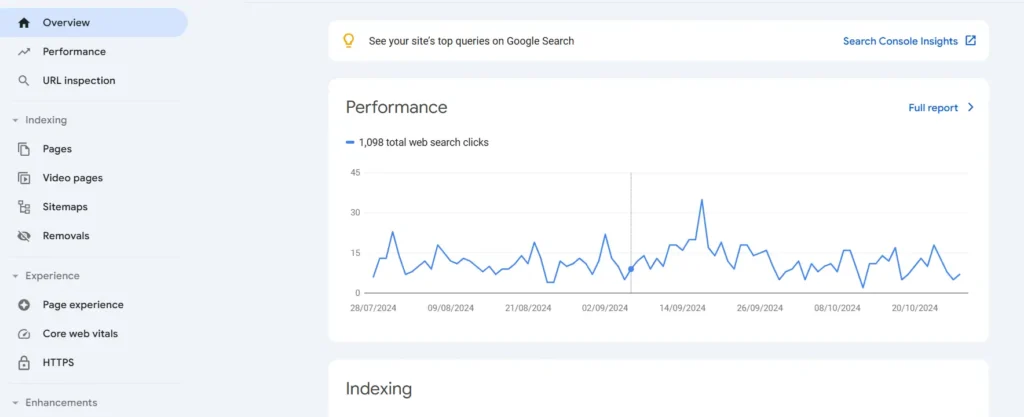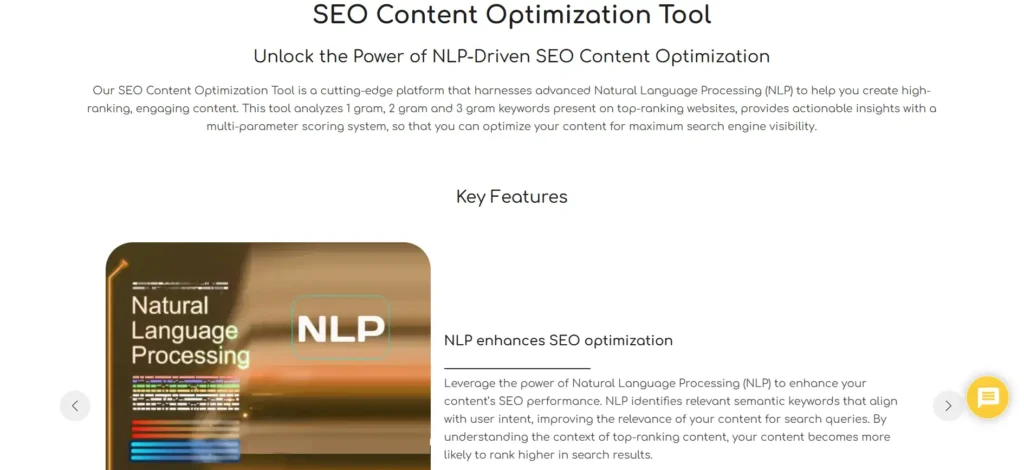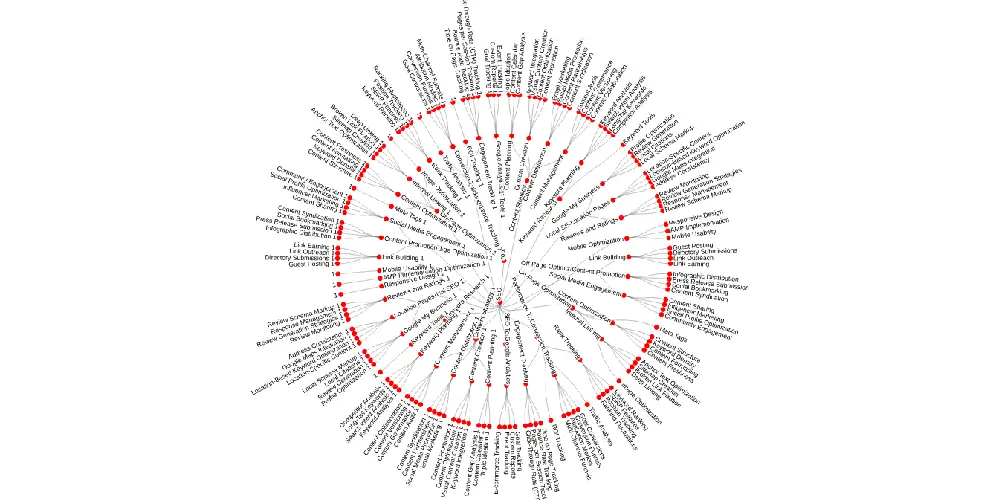Last Updated on November 14, 2025
Creating content that ranks well on search engines isn’t just about writing great articles – it’s about understanding and implementing effective SEO strategies. Whether you’re a beginner blogger or a seasoned content marketer, having the right SEO tools can make a huge difference in your content’s performance.
Over the past decade, I’ve curated the most effective SEO tools — both free and paid — that I rely on almost every day. In this comprehensive guide, I’m sharing them all with you.
What is SEO ?
SEO (Search Engine Optimization) is the process of improving your website’s visibility on search engines — not just Google, but also Bing, Yahoo, DuckDuckGo, ChatGPT, Perplexity, and other emerging AI-powered LLM based search platforms. The goal of SEO is to ensure your content appears when people search for relevant topics, products, or services — helping you attract more organic traffic without paying for ads.
To make this process effective and efficient, marketers and website owners rely on SEO tools — specialized platforms designed to help you research, analyze, and optimize your website for better search rankings.
These tools cover a wide range of functions, including:
- Keyword Research: Discovering what your audience is searching for and identifying high-value keywords.
- Competitor Analysis: Understanding how your competitors drive traffic, which keywords they rank for, and where their backlinks come from.
- Content Optimization: Creating SEO-friendly content that aligns with search intent and performs well on search engines.
- Technical SEO: Auditing and improving site speed, crawlability, indexing, and other technical aspects that influence rankings.
- Backlink Analysis: Tracking who’s linking to your site and identifying opportunities for link-building.
- Automation & Workflows: Simplifying repetitive SEO tasks like reporting, monitoring rankings, and tracking site changes.
Some tools focus on one aspect (like keyword research or technical analysis), while others provide all-in-one solutions that combine multiple SEO functions under one roof.
In this guide, I’ve reviewed and tested every tool on this list to give you honest, data-backed insights into their strengths, weaknesses, and best use cases.
My goal isn’t just to tell you which tool is “best,” but to help you choose the right SEO tool for your specific needs, goals, and experience level.
So, let’s dive into the top SEO tools category wise that can help you improve your rankings, create smarter content, and stay ahead in the ever-evolving world of search.
- Best Keyword Research Tools
- Best Competitor Analysis Tools
- Best Cotent Optimization Tools
- Best Technical SEO Tools
- Best Backlink Analysis Tools
Best Keyword research Tools That Pack a Punch
The best keyword research tools help uncover high-traffic, low-competition keywords that align with user intent. They should provide accurate search volume data, keyword difficulty scores, related keyword suggestions, and SERP insights to guide strategic content planning.
Google Search Console

The best things in life are free, and Google Search Console (GSC) proves this point perfectly. This essential tool comes straight from Google itself, making it one of the most reliable sources for SEO insights. With GSC, you can:
- Monitor your website’s performance in Google search results
- Identify which keywords are bringing traffic to your site
- Spot technical issues that might hurt your rankings
- Submit new content for indexing
- Check mobile usability
What makes GSC particularly valuable is its direct connection to Google’s search data, giving you insights you simply can’t get anywhere else.
Read Google search console detailed review here.
Ubersuggest
Neil Patel’s Ubersuggest has evolved from a simple keyword tool into a comprehensive SEO platform with a generous free tier. The free version offers:
- Basic keyword research capabilities
- Content ideas and suggestions
- Site audit features
- Competitive analysis
- Limited daily searches
While the free version has some limitations, it’s perfect for beginners or small businesses just starting their SEO journey.
Answer The Public
Want to know exactly what questions people are asking about your topic? Answer The Public is your go-to tool. It visualizes search questions and phrases that people type into search engines, helping you:
- Discover new content angles
- Understand user intent
- Find long-tail keywords
- Create FAQ sections that actually matter
The free version gives you a limited number of daily searches, but they’re usually enough for small-scale content creation.
Read Answer The Public detailed review here
Best Competitors Analysis Tools
Top competitor analysis tools allow SEOs to dissect rival strategies by revealing their top-ranking keywords, backlinks, content performance, and traffic sources. The best ones offer side-by-side comparisons, visibility metrics, and actionable opportunities to outperform competitors.
SEMrush
SEMrush has established itself as a powerhouse in the SEO world, and for good reason. It offers:
- Comprehensive keyword research
- Content optimization suggestions
- Competitor analysis
- Position tracking
- Site audit tools
- Content marketing platform
What sets SEMrush apart is its ability to provide accurate competitor data and its content marketing toolkit, which helps you optimize content from ideation to publication.
Read Semrush detailed review here
Moz Pro
Moz Pro brings authority and experience to the SEO tool landscape. Key features include:
- Keyword research with difficulty scores
- Site crawling and auditing
- Link research and analysis
- Rank tracking
- On-page optimization suggestions
Moz’s Domain Authority metric has become an industry standard, making this tool particularly valuable for link building strategies.
Ahrefs
Ahrefs is often praised for having the best backlink analysis in the industry, but it’s much more than that. It offers:
- Advanced keyword research
- Content gap analysis
- Competitive research
- Site audit features
- Content explorer
- Rank tracker
The tool’s user-friendly interface and accurate data make it a favorite among SEO professionals.
Read Ahrefs detailed review here
Best Content Optimization Tools
The best content optimization tools enhance on-page SEO by analyzing keyword usage, readability, internal linking, and semantic relevance. They should offer AI-driven recommendations to improve structure, engagement, and topical authority for higher Google rankings.
SEO Content Optimization Tool

SEO Content Optimization Tool by AIHelperhub gives you keywords directly from google top 5 listing results. It uses Natural Language Processing (NLP) to find out words that are semantically related to given query and then also suggests SEO score based on other parameters. If offers
- NLP-Powered Recommendations
- Technical SEO Optimization
- Content Gap Analysis
- Semantic Analysis
- SEO Scoring System
The free version has no limitations. Good for SMEs companies with little investment on marketing tools.
MarketMuse
MarketMuse brings AI-powered content optimization to the table. It stands out by offering:
- AI-driven content briefs
- Content scoring
- Topic modeling
- Competitive content analysis
- Content inventory analysis
While pricier than some alternatives, its AI capabilities can significantly speed up content optimization processes.
Surfer SEO
Surfer SEO has gained popularity for its data-driven approach to content optimization. Key features include:
- Real-time content scoring
- SERP analyzer
- Content editor with guidelines
- NLP-enhanced suggestions
- Keyword research tool
The tool’s ability to provide real-time optimization suggestions while you write makes it particularly useful for content creators.
Read full review of content optimization tools here
Best Technical SEO Tools
Leading technical SEO tools ensure your website’s foundation is search-engine-friendly. They should detect crawl issues, indexing errors, site speed problems, broken links, and Core Web Vitals performance, helping SEOs maintain optimal technical health.
Free SEO Website Crawler
The Free SEO Website Crawler on AIHelperHub lets you analyze your entire website — uncover broken links, duplicate meta tags, redirect chains, robots and indexing issues and more. Simply enter your URL to run a full technical audit, then download detailed reports of internal and external links for your team to act on.
Designed for both beginners and experienced SEOs, the tool offers unlimited usage without a paywall so you can run regular site-health checks and stay on top of the core technical issues impacting your search visibility.
Screaming Frog
Screaming Frog SEO spider is a powerful desktop-based SEO crawler that audits websites for key technical issues — broken links, redirect chains, missing or duplicate titles/meta descriptions, duplicate content, and more.
With a free version that crawls up to 500 URLs and a paid licence for unlimited crawls plus advanced features (JavaScript rendering, custom extractions, integrations with Google Analytics/Search Console) it suits both small sites and large scale audits.
Ideal for technical SEOs and content teams alike, it delivers real-time data to help you quickly identify on-page and structural issues which could be hurting search visibility.
Best Backlink Analysis Tools
The best backlink analysis tools track and evaluate a website’s link profile, helping identify high-quality links, toxic backlinks, and link-building opportunities. They should provide detailed metrics on domain authority, link types, and anchor text distribution for informed off-page SEO decisions.
SEMRush Back Link Audit
The Backlink Audit Tool from SEMrush helps you monitor and clean up your backlink profile by assessing each link with more than 50 quality‑parameters and a unified “Toxicity Score” to flag potential risks.
It integrates with Google Search Console and Google Analytics, allows you to upload external backlink lists, and supports sending disavow files to Google directly from the interface.
Ideal for SEO managers and site owners, it aids in identifying harmful inbound links, requesting removals, safeguarding against penalties, and maintaining a clean link profile for improved search visibility.
Ahrefs Backlink Checker
The Free Backlink Checker from Ahrefs allows you to instantly analyse a website’s backlink profile — showing followed vs no‑follow links, anchor text distribution, referring domains and IPs, and more.
Ideal for SEOs, site owners and link‑builders, it gives a quick yet thorough snapshot of your inbound link ecosystem so you can benchmark, audit or plan your link strategy with confidence.
Making Your Choice
When choosing between these tools, consider:
- Your budget and needs
- The size of your website
- Your SEO experience level
- Specific features you need most
- Integration with your existing workflow
For beginners, starting with free tools like Google Search Console and SEO Content Optimization Tool makes sense. As you grow, you might want to invest in one of the comprehensive paid tools like SEMrush or Ahrefs.
Remember, no single tool does everything perfectly. Many successful SEO professionals use a combination of both free and paid tools to achieve the best results. Start with what fits your current needs and budget, and expand your toolkit as your requirements grow.
Final Thoughts
The SEO landscape continues to evolve, and these tools are constantly updating their features to keep up with changes in search engine algorithms. While tools are essential, they’re just part of the equation. Combine them with quality content creation, solid technical SEO practices, and a good understanding of your audience’s needs to achieve the best results.
Whether you choose to stick with free tools or invest in paid solutions, the key is to use them consistently and act on the insights they provide. After all, the best tool is the one you’ll actually use to improve your content and SEO strategy.
- Top AI Marketing Tools in 2026 - December 2, 2025
- Best SEO Content Optimization Tools - November 13, 2025
- People Also Search For (PASF): The Complete 2025 Guide to Smarter SEO Optimization - November 11, 2025




